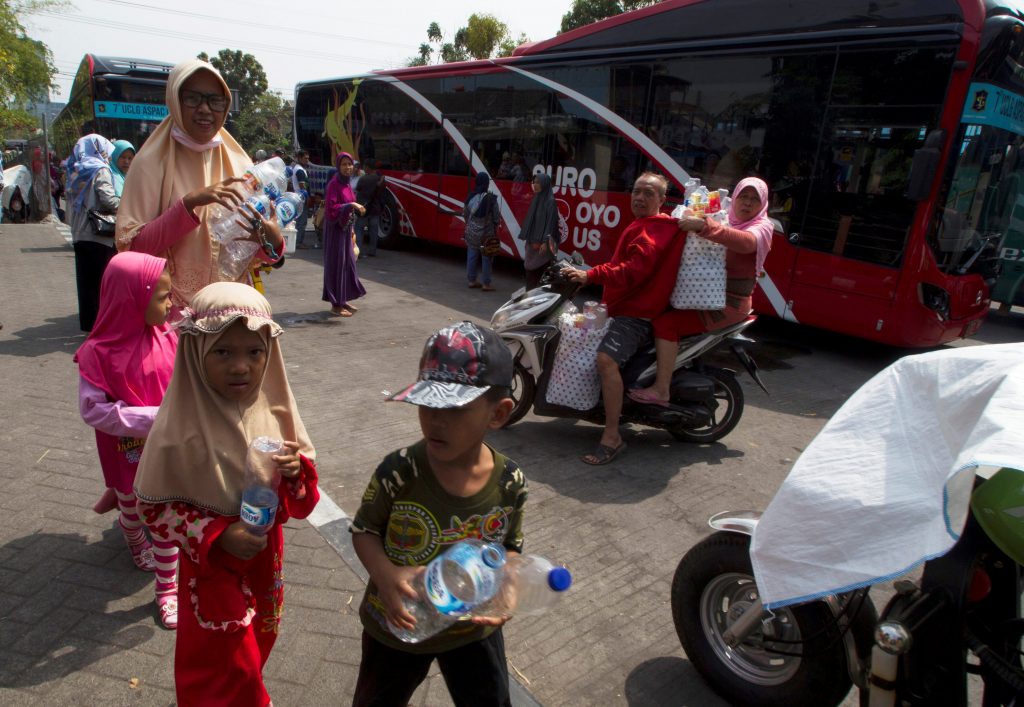Residents bring plastic bottles to exchange for Suroboyo bus tickets at Purbaya station in Surabaya, Indonesia, October 21, 2018. REUTERS/Sigit Pamungkas

By Prasto Wardoyo
SURABAYA (Reuters) – Indonesia’s second-largest city has come up with a novel way to encourage its residents to recycle waste: giving free bus rides in exchange for used plastic bottles.
Under the scheme launched by Surabaya in April, commuters can ride red city buses by dropping off plastic bottles at terminals or directly ‘paying’ a fare with bottles.
A two-hour bus ticket costs 10 plastic cups or up to five plastic bottles, depending on their size, which the city hopes will help it meet an ambitious target of becoming free of plastic waste by 2020.
Surabaya is the first city in Indonesia to implement this scheme.
“Garbage, like plastic bottles, piles up in my neighborhood, so I brought it here so the environment is not only cleaner but also to help ease the workload of garbage collectors,” said Surabaya resident Linda Rahmawati.
City data shows that 15 percent, or nearly 400 tonnes, of Surabaya’s daily waste, is plastic.
A bus can collect up to 250 kg (550 lb) of plastic bottles a day, or roughly 7.5 tonnes in a month, the data shows.
After collection, labels and bottle caps are removed from the waste and it is auctioned off to recycling companies.
Money earned from the auction goes towards running the bus operations and to fund green spaces in the city, located on the eastern tip of Java, Indonesia’s main island.
The world’s fourth-most populous country is home to the largest expanse of tropical rainforest in Asia but also struggles with grid-locked traffic in its congested cities.
“Indonesia is one of the biggest contributors in the world for plastic waste, and through this initiative, we hope to raise public awareness on the environment, especially issues that relate to plastic trash,” said Irvan Wahyu Drajad, the head of Surabaya’s transportation department.
Indonesia, an archipelago of thousands of islands, is estimated to be the world’s second-largest contributor of plastic pollutant in the oceans after China, according to a 2015 study published in “Science” journal.
Another Surabaya resident also welcomed the scheme.
“We can reduce trash so it doesn’t pile up at home because we can just bring them in and make good use of it. It is a win-win situation,” said Sulastri, who, like many Indonesians, uses one name.
(Writing by Ed Davies, Editing by Karishma Singh and Neil Fullick)


